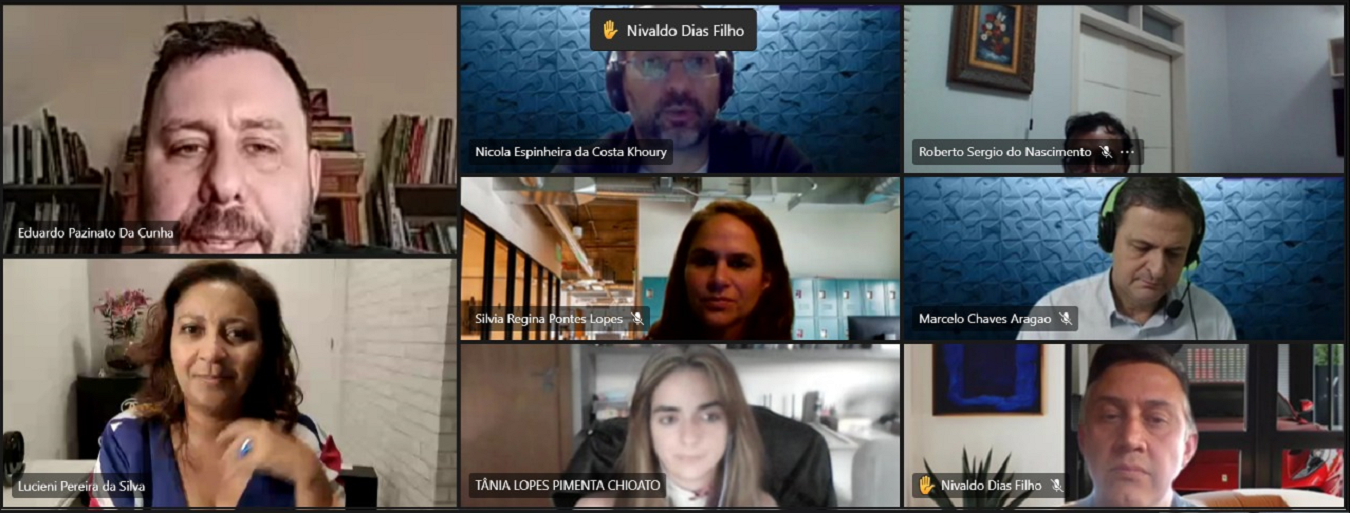
Brasília, August 1st, 2021 - The United Nations Office on Drugs and Crime (UNODC) held a meeting, last Monday, July 26, with members of the Federal Audit Court (TCU) and the Federal Public Prosecutor's Office (MPF) to follow up on the initiatives of its global project COVID-19 Anti-Corruption Response and Recovery, which is supported by the Bureau of International Law Enforcement and Narcotics (INL/USA).
The objective of the project is to assist nine countries from Africa, South America, and Southeast Asia (Argentina, Brazil, Chile, Colombia, Indonesia, Paraguay, Philippines, South Africa, and Timor-Leste) in recovering from the COVID-19 crisis and promoting effective responses to possible future crises.
The meeting was attended by the UNODC program coordinator, Eduardo Pazinato; the program officer, Chantal Castro; the director of DIPOG/SEMAG of TCU, Lucieni Pereira; the acting Secretary-General of External Control, Nicola Espinheira da Costa Khoury; the president of the Association of External Control Auditors, Nivaldo Dias Filho; the TCU Secretary of External Health Control, Marcelo Chaves Aragão.
Also attending the meeting were the Federal Auditor of the TCU of the Secretariat for Combating Corruption, Roberto Sergio do Nascimento; the Secretary of External Control of Special Accounts, Jose Ulisses Rodrigues Vasconcelos; the Federal Auditor of External Control, Leonardo Naves Souza; the Federal Auditor of External Control, Renata Silveira Carvalho; the Secretary of External Control of Logistical Acquisitions, Tânia Lopes Pimenta Chioato; and the Federal Prosecutor of the Combating Corruption Center of the MPF in Pernambuco, Silvia Regina Pontes Lopes.
Partnership proposal
Among the proposals presented is the provision of technical assistance to be conducted by the non-governmental organization Open Contracting Partnership, based in Washington, USA. The NGO is specialized in the management and analysis of open data and seeks to provide assistance and advice to control agencies in the improvement of transparency in public procurement.
In addition, the possibility of holding a "hackathon" was discussed, which is a programming marathon in which hackers get together for hours, days, or even weeks to explore open data, unveil codes and logical systems, discuss new ideas and develop software or even hardware projects.
The idea is to develop a technological solution to the challenge of tracking, recording, and monitoring the investment of federal funds, passed on as a mandatory transfer to other federative entities, especially in emergencies such as the current pandemic.
"The initiatives seek to present structural solutions for the efficient allocation and ensure transparency in the decentralized investment of federal funds, since all entities must provide accounting, budgetary and tax information and data, according to the frequency, format, and system established by the central accounting body of the Brazilian Government," said the National Project Officer, Chantal Castro.
According to the UNODC Project supervisor, Eduardo Pazinato, "technology can and should be an ally in preventing corruption and promoting transparency and integrity in public management, envisioning innovative solutions to complex problems from the mobilization of public and private sectors, civil society and academia.
The Federal Prosecutor, Silvia Regina Pontes Lopes, said that "the exchange of experiences and views among UNODC, TCU auditors and members of the MPF on such a sensitive issue as transparency of public spending is of utmost importance to overcome elementary difficulties regarding the traceability and auditability of public spending between the Union and subnational entities during pandemic times."
Read more about the global program: COVID-19 Anti-Corruption Response and Recovery
To know more: http://www.agenda2030.com.br/